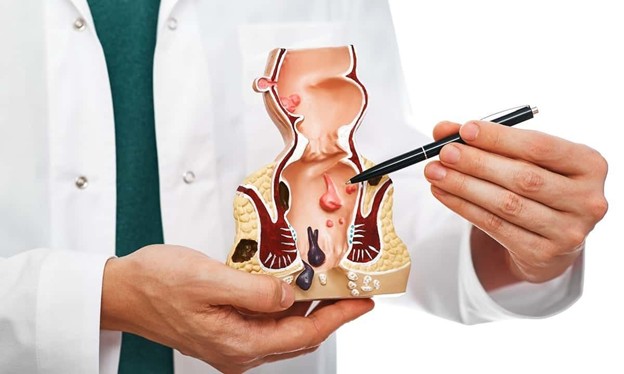Have you ever wondered: “Why can a small part like the anus become a big threat to health?” Anal cancer – a less talked about but equally dangerous disease – is quietly increasing in modern society. This article will guide you from SURPRISED to CLEARLY UNDERSTAND, equip yourself with knowledge to proactively cope!
1. Anal Cancer – The “Shadow” Enemy
HPV infection: 80% of anal cancers are related to HPV, especially HPV strains 16 and 18 (According to the World Health Organization WHO).
Weakened immune system: People with HIV or taking immunosuppressive drugs are at higher risk.
Anal sex: Anal intercourse increases friction, creating cracks – “open doors” for HPV to enter.
Smoking: Increases the risk of many types of cancer, including anal cancer.
Age: The risk increases with age, especially after age 50.
2. Common Symptoms
- Bleeding from the anus.
- Itching, pain or discomfort in the anal area.
- A lump or ulcer appears near the anus.
- Changes in bowel habits, such as constipation or persistent diarrhea
3. Diagnostic and Treatment Strategy
3.1. Diagnosis
Modern medicine helps EARLY DETECTION anal cancer in just 3 steps:
- Digital rectal examination (DRE – Digital rectal examination): The doctor uses his finger to check for abnormalities for 60 seconds.
- Colonoscopy, Ultrasound endoscopy + Biopsy: Camera siêu nhỏ “soi tận ruột” kết hợp lấy mẫu tế bào.
- PET-CT/MRI: CT scan to determine the stage of the disease and the extent of metastasis.
3.2. Treatment methods
- Radiotherapy combined with chemotherapy: Effective for early stage patients. Destroys cancer cells without surgery.
- Tumor resection surgery: Apply when the tumor is large or recurrent.
- Immunotherapy: Activate the immune system to attack cancer cells.
4. Disease Prevention – Protect Yourself From Today
Protect yourself against anal cancer with just 4 “GOLDEN SHIELD”:
- HPV vaccination: Females 9-26 years old, males 9-21 years old should be vaccinated vaccine Helps prevent infection with high-risk HPV strains.
- Safe Relationship: Use condoms, apply water-based lubricant to avoid anal scratches, limit the number of sexual partners.
- Say NO to cigarettes: Reduces the risk of many types of cancer.
- Periodic screening: If you are in a high-risk group (HIV infection, homosexual relationship), you should have regular check-ups.
5. Final Words: Power Lies in Knowledge
Anal cancer is rare but can have serious consequences if not detected and treated promptly.
Anal cancer is not a “death sentence” – it is only dangerous when we SUBJECTIVE.
Remember: Every delay in seeking medical attention is a lost opportunity for life.
#UngThưHậuMôn #HPV #VắcXinHPV #SứcKhỏeHậuMôn #PhòngBệnhHiệuQuả #QuanHệAnToàn #BỏThuốcLá #TầmSoátUngThư #PhátHiệnSớm
Reference document
- MedlinePlus. Anal cancer. MedlinePlus. https://medlineplus.gov/analcancer.html. Updated October 15, 2023. Accessed June 20, 2024.

